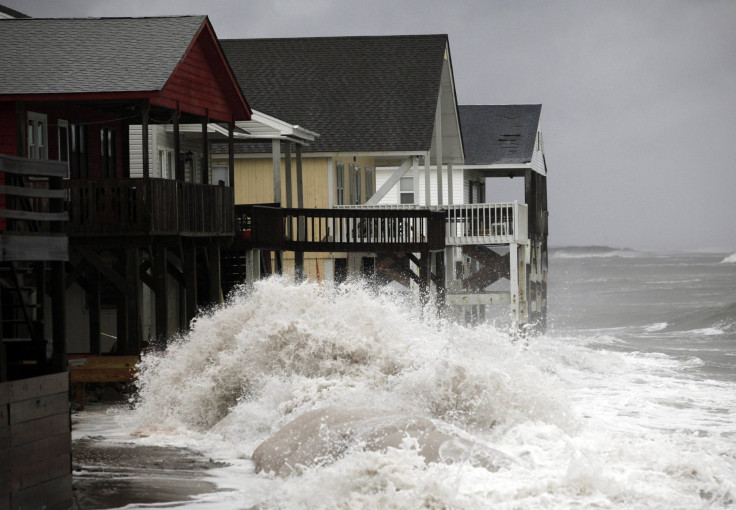Notes From The Wunderground: Exemplifying The Positive Power Of The Web

Weather watchers with a handle on history are well aware the most deadly natural disaster ever in the U.S. was the Galveston Hurricane of 1900, which claimed between 6,000 and 12,000 lives when it struck the Texas island that Sept. 8.
One reason for the appalling death toll was the dearth of advance notice before the arrival of the massive Category 4 storm on the Saffir-Simpson Hurricane Scale.
“The usual signs which herald the approach of hurricanes were not present in this case,” according to Isaac M. Cline, the U.S. Weather Bureau’s man on the ground at Galveston Island. “The brick-dust sky was not in evidence to the smallest degree. This feature, which has been distinctly observed in other storms that have occurred in this section, was carefully watched for, both on the evening of the 7th and the morning of the 8th.”
Because there were no signs of an approaching hurricane on Galveston Island, no alarm was raised, and no evacuation was ordered. And thousands of lives were lost.
One recalls the Galveston Hurricane of 1900 every time an alarm is raised and an evacuation is ordered. One remembers it now with Hurricane-Sandy-Cum-Frankenstorm ominously churning its way northward in the Atlantic Ocean as it awaits its date with landfall destiny on the U.S. East Coast, maybe Monday, perhaps Tuesday.
In this case, an alarm has been raised, evacuations here and there in the mid-Atlantic region of the country may be ordered, and virtually everybody knows all about it, thanks to the mass media in general and the World Wide Web in particular.
One especially helpful online site under the current circumstances is Weather Underground -- self-described as “The First Internet Weather Service!” -- which is a treasure trove of information about all things meteorological.
Focusing on the here and now, Angela Fritz, the Wunderground’s atmospheric scientist, noted in a WunderBlog post on Sunday that Hurricane Sandy is now the second-largest tropical cyclone in the Atlantic Ocean since 1988.
Fritz pointed out: “Sandy's tropical storm-force winds now extend 450 nautical miles from the center on the northeast side of the hurricane. This is a very, very large storm, and I suspect the #1 spot (Olga of 2001) is in jeopardy, as well.” As a reference, she also reported that Olga’s radius of tropical storm-force winds was 600 nautical miles.
Given the extraordinary size of Hurricane Sandy’s wind field, it appears Jeff Masters, the Wunderground’s co-founder and director of meteorology, might have been on solid ground when he wrote in a WunderBlog post on Saturday: “I expect Sandy's impacts along the mid-Atlantic … and New England coasts to cost at least $2 billion in insured damage and lost business, and there is a danger the storm could cost much more."
Masters added: "Steve Bowen, meteorologist for insurance broker AON Benfield, put it this way for me this morning: ‘Given the level of losses associated with Irene last year and the current projections of extended high wind, heavy rainfall, coastal surge, and an inland flooding threat for many of the same areas with Sandy, it would not come as a complete surprise to see a multibillion-dollar economic loss.’”
Bryan Norcross, a hurricane specialist at the Wunderground’s parent Weather Channel, also had a blog post on Saturday about multiple aspects of the budding Frankenstorm. After explaining the atmospheric processes that are at play or at work in the formation of the Frankenstorm, he wrote: “There are some ifs and maybes in [the] scenario, but the best computer forecast models independently insist that this is what's going to happen -- and the not-so-reliable ones say the same thing. So, beginning immediately, it comes down to figuring out how to deal with it.”
Norcross later concluded: “[I]f this all happens as forecast, and you and your family are stuck in the cold and dark without food and light and communications because you didn't run to the store and get ready -- excuses are going to spectacularly hard to come by.”
Indeed. An alarm has been raised, and evacuations may be ordered.
© Copyright IBTimes 2024. All rights reserved.






















